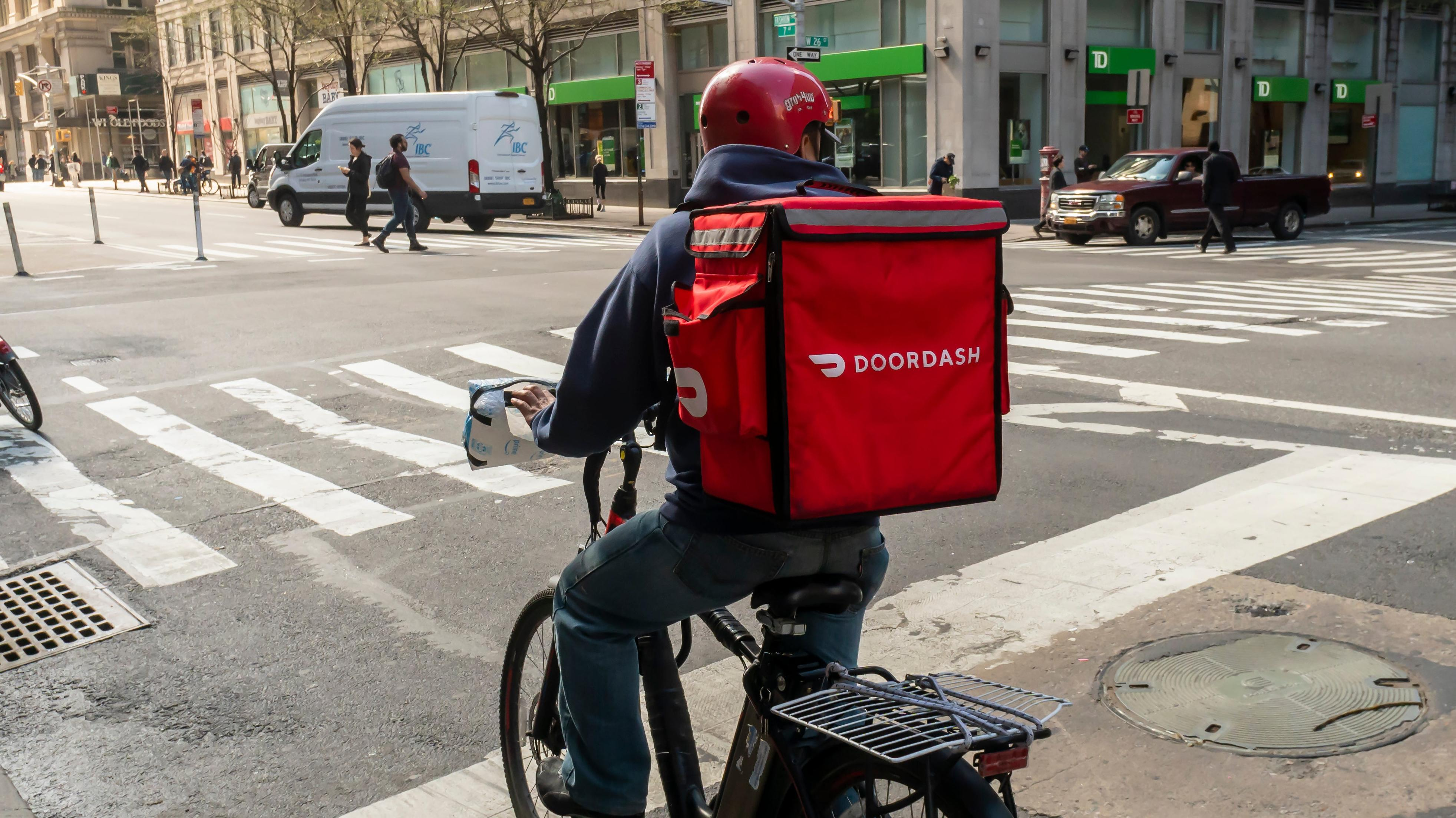What DoorDash Layoffs Mean For The Future Of Food Delivery
Disrupting the food industry is proving to be more difficult than the founders originally thought.
On November 30, DoorDash's co-founder and CEO, Tony Xu, made a grim announcement: The company would be laying off 1,250 employees, or 6% of its workforce. The online food delivery platform founded in 2013 by Xu and several of his business school classmates is now taking things a bit more strategically, according to Xu.
"Our business has been more resilient than other ecommerce companies, but we too are not immune to the external challenges and growth has tapered vs our pandemic growth rates," he wrote in a message to DoorDash employees. Like CEOs of other tech companies writing statements about layoffs (including Mark Zuckerberg), Xu noted that he takes personal responsibility for these actions and the decisions that led to them.
These DoorDash layoffs seem to signal the end of what The Wall Street Journal calls "pandemic-fueled hiring." Here's what we can learn from DoorDash about the future of third-party food delivery platforms.
The explosive growth of food delivery
While attending Stanford Business School in 2013, DoorDash's founders discovered that many restaurants in the Palo Alto area were losing business because they didn't have the resources to deliver food. The solution: design a tech platform that could connect restaurants and hungry customers. The DoorDash business model was simple enough—for a $6 fee, users could get their food from local restaurants delivered in under an hour.
Like so many startups that came on the scene within the past decade, DoorDash grew quickly. Less than a year after its founding, the company managed to raise $2.4 million and was accepted into the prestigious Y Combinator program for budding businesses.
DoorDash was not the first food delivery platform—Grubhub and Just Eat were founded years earlier—but it came at the right time, when there was peak need on both the customer and the restaurant side. By 2018, the company was valued at $4 billion, and by August 2021 it had fulfilled two billion orders.
A short-term solution to pandemic woes
The year 2020 was, of course, transformative for such a business. For reasons related to health, safety, and logistics, many people staying home during the pandemic found that they needed the services of delivery platforms such as DoorDash, GoPuff, and Shipt, and that need stretched well into 2021.
"The pandemic presented sudden and unprecedented opportunities to serve the evolving needs of merchants, consumers and Dashers," wrote Xu. "We sped up our hiring to catch up with our growth and started many new businesses in response to feedback from our audiences."
Like instant grocery delivery businesses, DoorDash and other tech companies invested in catering to customers' newfound ordering habits, presuming those habits would stick around long-term. Other businesses built upon the idea that we wouldn't want to leave our homes as often: Wonder, part of the Wonder Group founded in 2018 by serial entrepreneur Marc Lore, came on the market in December 2021 as a mobile prep kitchen that employs well-known chefs to cook meals right outside your front door. In May 2022, Wonder closed a $350 million funding round and was valued at $3.5 billion.
This concept, while great in theory, proved to be costly with slow growth, requiring "fleets of pricey vehicles," as reported by Kristen Hawley for Bon Appetit.
"Its success [also] requires a lot of faith that enough suburbanites will pay for dinner from a van more than once or twice," Hawley wrote.
The future of food delivery businesses
In a 2018 interview with NPR's How I Built This podcast, Xu was asked how he envisioned the next ten years of DoorDash. Despite being the co-founder of a tech company, his answer centered on the act of being physically surrounded by others in the comfort of a favorite local restaurant.
"I still envision, in ten years, people going into stores," he said. "We're still social creatures. We still go and hang out with our friends and coworkers or spouses and partners, and we're going to do that in the physical world, and DoorDash will help you figure out which business to do that with, and we'll be the best way to grow local businesses." Xu added that he sees DoorDash as "the biggest infrastructure for a city that connects consumers and merchants."
Despite the global pandemic that rocked the restaurant industry since that 2018 interview, Xu and other leaders in the tech space would still do well to consider the human element of food delivery going forward. No matter how much seamlessness can be built into these services, people crave connection as much as convenience. For a company to survive long-term, it must learn to bridge the gap between them.
